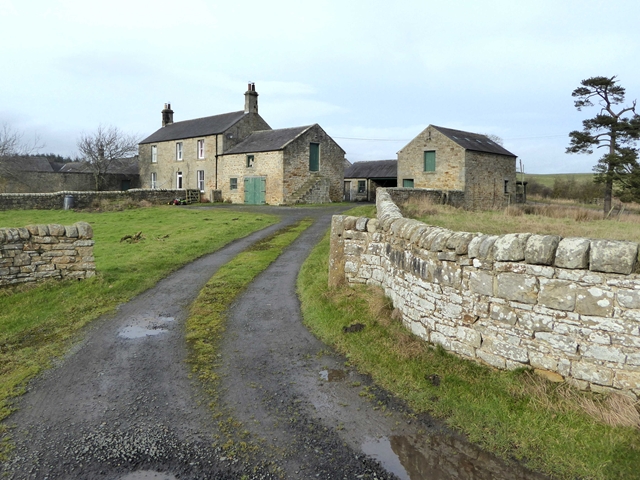Fancy being left for a week or two in an isolated farmhouse far from any shops, with no power for heat, lighting, phones or the internet, and outdoor/indoor temperatures never far from zero? That’s what happened to Charles Palmer, his family and many thousands of other households after Storm Arwen. It took Northern Powergrid over a week and in some cases nearly two to restore power, even with the (late) involvement of the MOD. Some properties have not yet had power restored. Hard to heat in the best of times, many homes have been the temperature of fridges.

Listen here as he describes the impact on household finances and the desperate financial situation some are now facing this December.
We are gathering reports from people who are struggling to survive in the absence of the compensation they are entitled to.
We need your help and support in getting the message out about the plight of those impacted. There has so far been only limited attention to this in Parliament. A full inquiry into the disastrous response by Northern Powergrid should lead to fundamental change — it should never happen again.
Please help amplify our posts and calls to action of Ofgem and Northern Powergrid.
Old stone farmhouses and cottages are hard to insulate, although materials like hempcrete may make this easier in the future. Making these homes energy efficient and less dependent on fossil fuels is clearly an urgent matter, which cannot be solved by one-size-fits-all technical solutions.
In Mr Palmer’s rural upland area, most people are reliant on oil or LPG and coal or firewood. Oil and LPG must be bought in bulk — simply unaffordable for many families. Government regulations have imposed a switch to lower bitumen coal, which is supposed to be “greener” but Mr Palmer says it burns so badly that it keeps going out, bungs up the stoves with waste, and in any case you need far more of it so the carbon savings only exist on paper. As we’ve always said, if it doesn’t work – it isn’t green.
Meanwhile, electric power is essential for keeping the heating systems going, as well as for lighting, and often for pumping and filtering water from wells. And some, relatively few homes, now base their heating on heat pumps, which are totally dependent on electricity. The lack of back-up provision of generators or fuel in some new homes built with heat pumps, and the huge delay in getting power back up and running, has led to residents being evacuated with hypothermia during the prolonged power failure. If heat pumps are to be the key technology in transition to lower carbon homes, they need to be installed with attention to local realities and the changing climate, as well as the need for thoroughly well-insulated homes.
Unsurprisingly in this situation we are hearing anecdotal reports of deaths related to the incident and more are expected. There’s a statutory requirement for Northern Powergrid to compensate its customers, and Ofgem has lifted the usual ceiling of £700 for compensation, for present purposes. However, no one knows how or when these Guaranteed Service payments will be paid. In any case the money, when it arrives, will do nothing to ease the present crisis. Some people have used up a whole month’s budget in a week and are left without anything to buy more food or fuel, never mind the costs of the festive season. Some have been reliant on takeaway dinners, some have had to evacuate their homes and stay in hotels, and many have lost the whole contents of their freezers, normally kept well stocked for winter emergencies. Soup kitchens have had plenty of Christmas turkeys, to turn into pre-Christmas soup. But with little or no public transport in these areas, many people cannot easily reach soup kitchens, cannot afford the petrol or diesel to get to towns or even villages, and cannot leave their homes and abandon their animals. Some have been reached at home by a massive effort of volunteers and local businesses and services, but even where help has been offered it has often been far from adequate. Many people have also lost work hours, or have been forced to use up their holiday entitlement.
In a crisis like this, it is shocking that people have not been able to rely on their supplier to keep them safe. Mr Palmer reports that a local business installed a number of generators for isolated homes, but after some initial successful installations they then found they couldn’t get the necessary authorisation released by Northern Powergrid to purchase any more: apparently Northern Powergrid said they wanted to “bring the incident back into the business”. Were they afraid of reputational damage from not being able to do the job themselves, when they clearly had no capacity to do this? An email from FPA to Ofgem late on Sunday, 5 December saw Ofgem immediately emailing Northern Powergrid:
“For the avoidance of doubt, we expect network companies to make every effort to reconnect customers as soon as possible. This includes maximising the use of partner organisations to deliver support to customers, including gensets to reconnect domestic properties that are still without power. We do not have any requirement that all the work must be done by NPG themselves.”
As power returns to the hills and valleys, we are now asking Ofgem to ensure that an advance of the statutory compensation is paid now, in cash, so that people can get through December.

